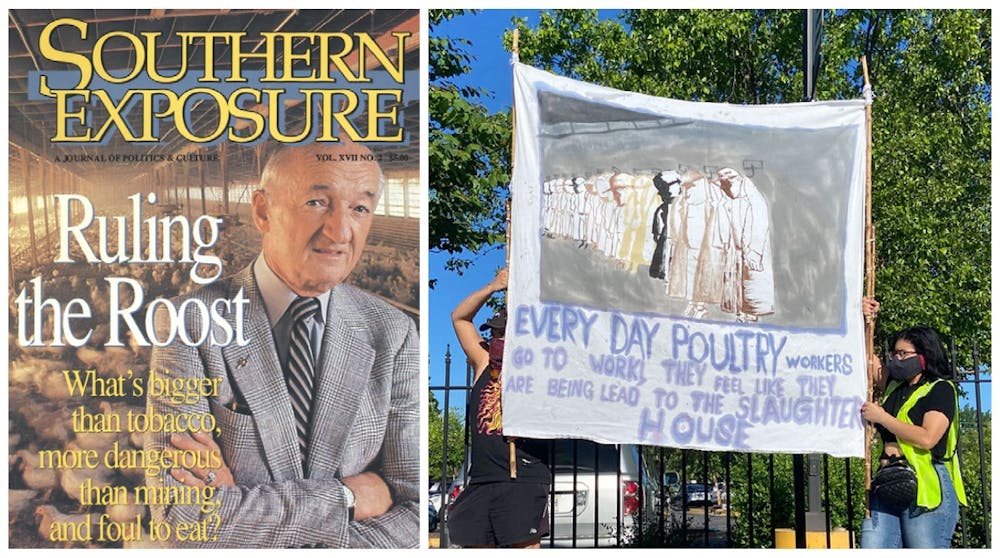“We were not journalists as much as we were activists."
These are the words of Bob Hall, founding editor of Southern Exposure as he remembered his role at the magazine.
The award-winning publication is produced by the Institute for Southern Studies and will celebrate its 50th print anniversary this Saturday at Wilson Library. The event is in collaboration with UNC's Southern Historical Collection, North Carolina Collection and Center for the Study of the American South.
"This honors the beginning of the magazine, but really, it honors this moment in North Carolina organizing. And also the print culture of the movement, the importance of independent journalism, the importance of arts and culture, the importance of documenting sort of Southern legacies," Biff Hollingsworth, collecting and public programming archivist at Wilson Library’s Southern Historical Collection, said.
The first part of the event will be a private opportunity for veteran editors and contributors of the magazine to reunite and remember their work. Then, there will be a panel discussion open to the public.
In the five decades since its founding in 1973, the magazine has tackled various long-term projects in the South that required extensive investigation.
“It had its one foot in the past and one foot looking towards Southern futures,” Hollingsworth said.
At the time Southern Exposure was founded, Hall said that many "liberal" newspapers in the South supported the Vietnam War and opposed Black Power. Southern Exposure’s aim was to create an “agitational and innovative” project that would have a lasting impact.
Along with pioneering research on corporate power, discriminatory practices and environmental protection, the magazine was among the first to publish in-depth oral histories from the Great Depression era. These oral histories focus on the stories of the past and how they shaped the current culture.



